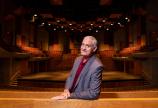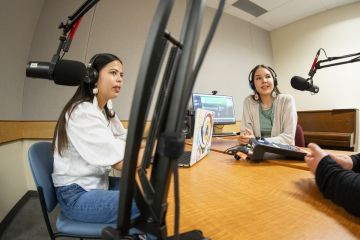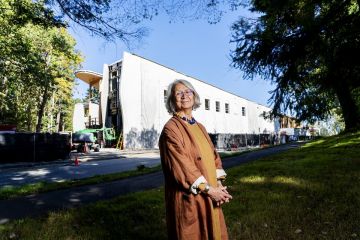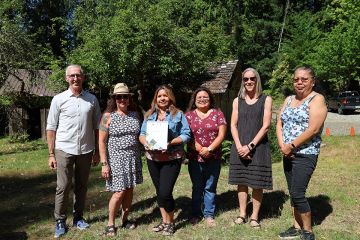Engaging in decolonization as a settler
- Ian Case
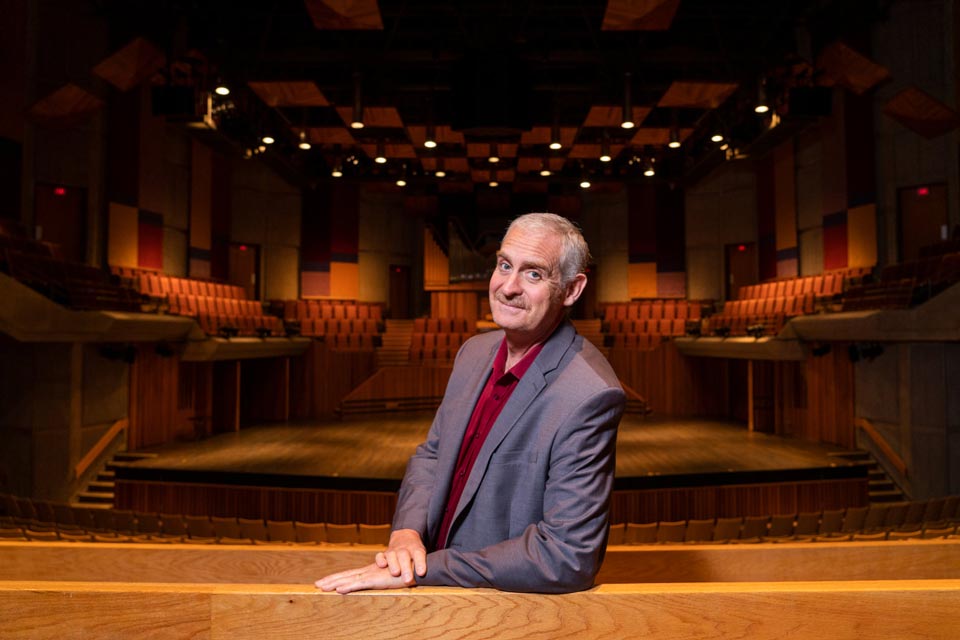
UVic Director of Ceremonies Ian Case recently led the Farquhar auditorium to engage in the Voices in Circle initiative, bringing in more Indigenous talent to the stage and bringing members of Indigenous and Métis communities together to guide programming decisions for the series. During this process Ian discovered that decolonizing requires honesty, openness, willingness to change and shift gears, being open to hearing difficult truths and making space for other voices and opinions.
Case shares his reflections in this recent Q&A as a way to connect with departments across the University of Victoria that are looking for ways to decolonize their own policies, processes and ways of working as a commitment to truth, reconciliation and healing.
What does it mean to decolonize?
Understanding what decolonizing means and what it looks like has been a bit of a struggle if I’m honest. There’s no clear and simple definition to guide one because decolonizing any practise or structure requires really digging into understanding how that practise or structure is colonial in nature. This means there’s no one answer for how to approach decolonizing any given thing. For me, it meant looking at the decision-making process. I have worked in non-profit, bureaucratic and Board of Director driven environments. All three of these are colonial constructs and come with a raft of policies, procedures and rules—things like Robert’s Rules of Order to run meetings, speakers lists. These structures impact everything from the free-flow of discussion to the generation of creative ideas to putting together action plans. In the case of Voices in Circle, I started from a place of offering a blank slate, asking the participants in the Programming Circle to help determine how we would meet, how we would make decisions and how we would then develop action plans out of those decisions. I feel that decolonizing requires honesty, openness, willingness to change and shift gears, being open to hearing difficult truths and making space for other voices and opinions. The first step is to work hard to establish a safe space where truth can be told, heard and accepted. From there, one builds trust that will be the foundation for all the work to come.
Why is this important to you/department?
It was important for the Farquhar to approach presenting Indigenous artists in a way that wasn’t tokenistic. Indigenous arts and culture are starting to getting some of the attention and focus they deserve. To start to present Indigenous artists in a better way, it was important that how selected and engaged those artists with the Farquhar, UVic and the community be done in a sensitive and appropriate way. We had to make space for Indigenous and Metis voices from the start to finish of the programming process. We needed to start to build relationships and trust to really do the work we wanted to do and to make the Farquhar a safe space for Indigenous artist and audiences. With UVic’s deep and true commitment to truth, reconciliation and healing, it was important that the Farquhar play a role in walking the walk. Voices in Circle is our response to that commitment.
What steps did you take?
Personally, I did five or six years of Indigenous acumen training. I took workshops, did blanket exercises, and read as much as I could so that I could start to understand both the history of this land, and the injustices done to Indigenous people. I learned to make space for other voices, creativity and ideas. I also spent time looking at the privileges both I and the Farquhar have and looked at ways we could share those privileges with others—essentially making space to make those privileges available to others that might not have had them until now. I reached out to people who I knew could help to guide me towards a better way of doing things—people who had already started to do this good work and to walk this path. I listened, I learned and I tried my very best to remain open to ideas and change. I’m still learning and still working to remain open to new ideas and creativity.
What were the successes/challenges?
The biggest challenge for me was getting started. I struggled with feeling what I can only call “settler’s guilt” which sometimes immobilized me. I didn’t feel that I knew enough, understood enough—that by asking for guidance, help and work that I was imposing on others that were already overburdened. Once I started to talk about the kernel of the idea of Voices in Circle though, I was met with great enthusiasm and nearly every Indigenous person I talked to wanted to join in the work of creating the series. That generosity and willingness to join in and give other their time has been one of the major successes of Voices in Circle. We’ve just come off of two days of having Jeremy Dutcher interact with campus and community groups as well as their performance in the Farquhar on Friday and that has felt like a huge success. Jeremy’s visit was deeply moving and in many ways transformational for a lot of folks. It has really started to build the relationships, trust and feeling of connection that was the initial hope for Voices in Circle.
What would be your best key take away?
I think the key to this work is being open, listening deeply and being willing to change. That change needs to be personal as well as institutional in order to be really meaningful and genuine.
What advice would you have for other departments looking to decolonize their systems?
It’s great if others can seek out resources and learning in advance of starting a process of decolonizing. I don’t think you every feel fully ready to take it on though so my advice would be to just start trying. Talk to people about ways you can look at changing your processes, your ways of doing things and your ways of being. Ask for help. Ask to understand protocols as well. Asking for help from Indigenous and Métis folks means you’re asking them to do emotional, mental and sometimes physical labour that can be difficult and frustrating work. Make sure that you’re doing your best to meet their needs and to recognize what that work might mean and cost them.
Photos
In this story
Keywords: reconciliation, arts, administrative
People: Ian Case
Publication: The Ring

